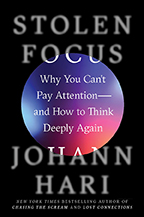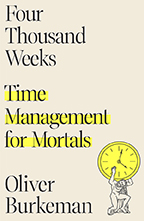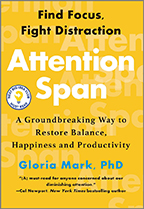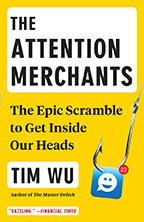We pay it, we buy it, we vie for it. What we do (and don’t) with our attention seems more urgent now than any other time — especially since social media, an attention drain for many of us, garnered a surgeon general’s advisory in May for its contributions to a mental-health crisis among American youth. The warning lands in the middle of a developing public conversation around the broader topic of attention, with new books and articles arriving at a blurry pace over the last few years. We can probably all sense why.
It is at the same time relieving and infuriating: We have always been, and will be, troubled by attention’s nemesis, distraction.
Distraction was alive and well in the 19th century, Yale professor Caleb Smith said this year in Thoreau’s Axe: Distraction and Discipline in American Culture. In Late Antiquity and the Middle Ages too, monks thought extensively about distractions as they studied, worked, and prayed, Jamie Kreiner writes in The Wandering Mind: What Medieval Monks Tell Us About Distraction, published earlier this year. They anticipated distraction, she writes, “as a structural feature of their societies.” And it was “attention, not property, that was the most prized possession at stake.”
More than just focus, attention is the time we devote to something, and the depth to which we endeavor to understand it. A better place to begin is observation, Christian Madsbjerg, author of Look: How to Pay Attention in a Distracted World writes. And “the best observers are not asking: What is happening?” he writes. “They are asking: How are we experiencing it?” To only rid ourselves of distraction is to miss the meaning completely.
Being a good observer sounds a lot like being present. Presence has to be understood as a practice, not to be perfected. Kreiner notes one collection of ascetic monks: “Bad thoughts and travelers move on eventually,” they said. “The key was not to be ruffled by the interruptions.” The aim, rather, was to engage distraction without being defeated by it.
That we work and build and think and make is uniquely human. So is the way we experience that work, the way we experience the distractions that come along. But, as Madsbjerg writes, “if we don’t cultivate enough patience and fortitude to be sensitive enough to see life as it is really lived, we miss it all.”
It’s relieving and infuriating: None of us is perfectible. But if this conversation has a central theme it’s that we are changeable enough to learn to pause, consider, and start again.
The Conversation
Entries new and recent.




